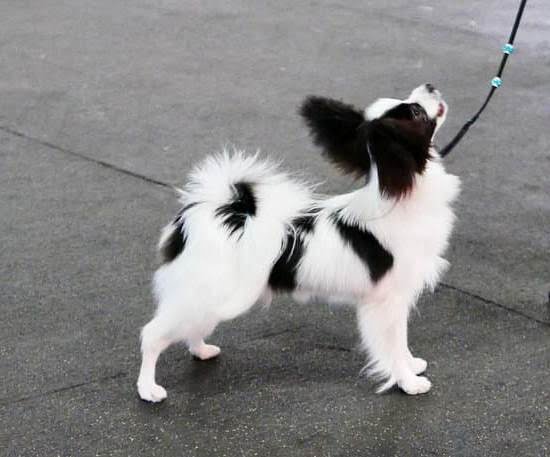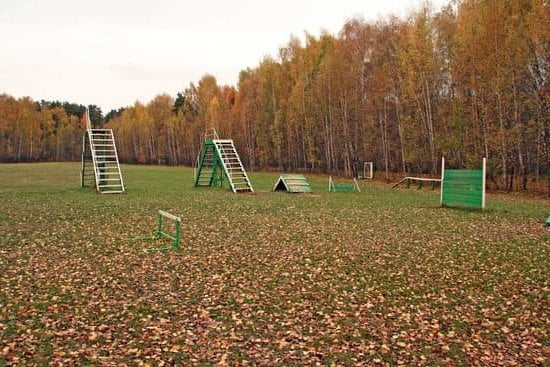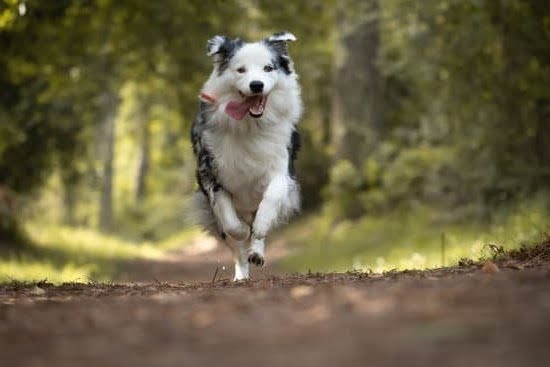Introduction
Training your dog not to bite your feet might seem a difficult task but it’s actually quite simple. With a little patience and practice, you can teach them respect for your skin and body that will significantly reduce the risk of being bitten. To start, you must create clear boundaries for what behaviors are acceptable and not acceptable in order to properly learn how to train your dog to not bite your feet.
Patience is key when training any pet, especially one prone to biting, as it takes time for them to get used to the idea of not nibbling at your feet during playtime or when they’re feeling excited. It’s important to stick with positive reinforcement while training so as to reward good behavior instead of punishing bad ones; dogs are far more likely to respond well and become emotionally invested when they’re praised rather than scolded for their misdeeds.
The first thing owners should do is provide appropriate chew toys for their fur buddies. Provide a safe object that satisfies the need to chew, that can give quick and easy satisfaction compared with trying (and failing) with human hands and feet. Keep a rope or toy handy so that when you say “No Bite” it’s immediately given as an option instead of feet or fingers being offered as targets.
A consistent routine should also be established so that the pup knows what time is playtime and what time is quiet time—this routine helps keep them in check during less supervised moments when they may try nibbling at an exposed foot without consequence; this also helps make sure that they don’t think biting is normal behavior during these times when there’s no discipline taking place.
Finally, continuous verbal corrections such as saying “no bite” every time they lunge at feet are critical if you want positive results from training sessions; doing this regularly will ensure that their urge has been stamped out completely over time and reinforce proper behavior even in absence of other punishments or rewards like treats. With enough practice, consistency and discipline, teaching your pooch respect for personal boundaries might seem like an impossible task but it doesn’t have to be!
Reasons Not to Delay Training
Training a dog not to bite your feet is an important component of proper pet ownership. Unfortunately, many owners wait to begin training until their dogs are several months old, however, this delay could lead to possible risks for both the owner and their pet.
One big risk that comes with delaying dog training is the potential health risks associated with behavior issues. Dogs who have not been properly trained may be more likely to engage in unacceptable behaviors such as biting and nipping when they feel threatened or scared. This can cause a range of health issues from minor scratches and cuts from teeth to being exposed to dangerous viruses or parasites through puncture wounds. Additionally, by waiting to train a dog not to bite your feet, you could miss out on opportunities for early socialization which affects how the animal behaves around people and other animals throughout their entire life.
Another risk associated with delaying the training process is injury. Even if the bites are not severe enough to cause health problems they can still result in pain, swelling, and soreness on the parts of your body that come into contact with your dog’s mouth. Poorly trained dogs may also resort to using teeth when playing instead of using gentler paws like dogs who have been taught good manners will do. This could put you at greater injury risk simply because you didn’t take proactive steps early on to prevent it.
The last big risk of delaying dog training is emotional stress caused by the frustration of dealing with unacceptable behavior for longer than necessary. Training should always be done positively rather than forcing techniques such as punishment that can make your pet hostile or confused and result in feelings of anxiety or resentment towards their owner over time if left unresolved too long. Additionally, having an untrained pet can often become embarrassing while visiting family members or friends outside the home leaving both you and your pup feeling unhappy and stressed due inadequate preparation.
The Benefits of Training
Teaching your dog to not bite your feet can be a daunting task, but if you utilize positive reinforcement techniques, it is possible. Positive reinforcement is the establishment of desirable behaviors through rewarding them with treats and praise. This gives doggies the motivation to repeat that behavior in an effort to earn rewards. Positive reinforcement does not require punishment or negative discipline. When using positive reinforcement to puppy-proof your feet, consider these steps:
1. Establish a command word when you want your pup to stop biting: Using only one clear command will create an unambiguous understanding of what you are asking from your pooch. Make sure everyone calling the pup uses this same command every time they want him to stop biting their feet.
2. Reward and Praise Good Behaviour: Every time your pup stops nipping at your feet, reward him with a treat or verbal praise. Be consistent in the praises and rewards and after doing them a few times each day, your puppy should start responding right away and showing more appropriate behavior during playtime.
3. Exercise Regularly: Make sure that you exercise with your pup daily to burn off extra energy which might contribute to overzealous playtime activities such as biting feet! Going for regular walks or playing with toys can help reduce overly frisky behavior around humans’ lower extremities!
4. Refocalize Your Dog’s Attention on Toys: If you see your pup becoming too excited or aggressive when trying to chew up people’s toes instead of continuing an already-established behavior (like biting), have them refocus their attention on something else like chewing toys or playing fetch; this helps redirect the pup’s focus while also providing fun activities they can enjoy rather than clawing human skin!
Assessing the Environment
One of the essential steps in training your dog not to bite your feet is identifying what triggers the behavior and taking the necessary steps to resolve those issues. For example, if you notice that your dog bites your feet when playing games that involve chasing, it may be necessary for you to adjust the game so that no one gets their feet involved. If there are any other physical or environmental factors that you feel might be affecting this behavior, such as lack of mental stimulation or boredom, then these need to be addressed.
Another strategy is to establish a clear command such as ‘stop’ paired with a firm hand signal or vocal cue that can be used to teach your dog when they have gone too far. Not only will this enable them to better understand limits set by you, but also encourage them to stop and think twice before jumping right into biting another person’s feet. Additionally, providing positive reinforcement in the form of treats, verbal praises and cuddles whenever they follow commands correctly will help speed up the training process by reinforcing desirable behaviors from an early age.
Rewards-Based Training
One of the best approaches for discouraging your dog from biting your feet is to use rewards-based training techniques. Rewards-based training is a type of positive reinforcement, where an animal learns to demonstrate desirable behaviors due to receiving reward or food-based treats. Initially, begin by teaching your pet basic commands such as ‘sit’ and ‘stay’ when giving him his reward/treats. If your dog responds positively to these commands, start implementing them when he bites your feet; for instance, if he does so when you are walking around the house say ‘sit’ followed by rewarding him with an appropriate treat. This will provide the necessary encouragement eventually leading to the extinction of this undesirable behavior.
Incorporating a consistent routine into training can go a long way and should include elements of play time, leash walking and obedience training. Regular and sustained exercise is paramount too to ensure that there exists ample opportunities for physical activity outside under controlled environments. With ample exercise coupled with rewards-based learning one has far greater chances of effectively curbing this undesirable behavior in their dog!
Tips and Techniques to Help Stop Your Dog From Biting Your Feet
1. Be mindful of body language: Dogs are very sensitive to our body language and can become easily scared or confused if we don’t communicate correctly. When your dog is about to bite your feet, try to observe your body language closely and see what might be sending confusing or conflicting signals. If you see any tense or aggressive stances, relax and adjust your posture in a way that is comforting and inviting for your pup.
2. Teach the “leave it” command: Commands such as this help create boundaries that your pup must respect. Make sure they understand the command by providing rewards when they stop biting feet after hearing it. You can also say “ouch” in response to them getting too close with their teeth, as a form of negative reinforcement, but make sure to always follow up with positive reinforcement when they obey the command immediately afterward.
3. Keep treats handy: Providing treats as rewards for good behaviour will encourage them to think more attentively before taking action, as dogs associate positive reinforcement with tasty treats! Ensure that the kind you feed them is healthy and nutritious so as not to negatively affect their health in any way.
4. Remove temptation objects: Sometimes it’s easy for our pup to fixate on whatever has caught their attention (mainly our feet!). To avoid this focus, keep socks and shoes locked away so that they don’t get tempted into trying them out!
5. Show leadership: Puppies are pack animals and look towards a leader figure (their human) for wise direction and clear boundaries – something that is even more vital when discussing behavioural issues like biting feet! Don’t forget to reward yourself too when you succeed as this will motivate both you and your pup in equal measures!
When to Hire an Expert
When it comes to training a dog to not bite your feet, hiring an expert to help can be incredibly beneficial. An experienced trainer will have the necessary expertise and knowledge to coach you on how to teach your dog the proper behavioral boundaries. They can also offer helpful advice for dealing with potentially dangerous situations such as aggression or dominant behavior. Furthermore, an expert may be able to customize their program for your particular breed of dog or specific issues that you are facing. Ultimately, an expert or professional trainer should always be called in if a dog is exhibiting any concerning or dangerous behavior, such as biting your feet. Even if you feel confident in training your own pup, getting additional guidance from an expert may lead to more effective results over time.
Conclusion
The journey to having a well-trained dog may seem intimidating, but the rewards that come with it will be timeless. Dogs who have been trained not to bite your feet can enjoy company and contact without fear or trepidation. You and your pup can finally feel relaxed together and even take part in activities you have watched other doggy families do, such as hiking, walking on the beach, snuggling on the couch, and more!
To reap the rewards and experience all of these joys, make sure to be consistent with your training methods. Utilize positive reinforcement with treats so you can show your pup what kind of behavior you appreciate when it comes to their interactions with you (or anyone!). As you progress through your teaching steps, stay patient and complement each success in training.
By reaching this milestone of having a well-trained dog who knows not to bite your feet, you’ll both be able to strengthen the bond between you two while also ensuring safety for everyone involved. Everyone deserves a good relationship with their pup — go ahead and make it happen!

Welcome to the blog! I am a professional dog trainer and have been working with dogs for many years. In this blog, I will be discussing various topics related to dog training, including tips, tricks, and advice. I hope you find this information helpful and informative. Thanks for reading!





